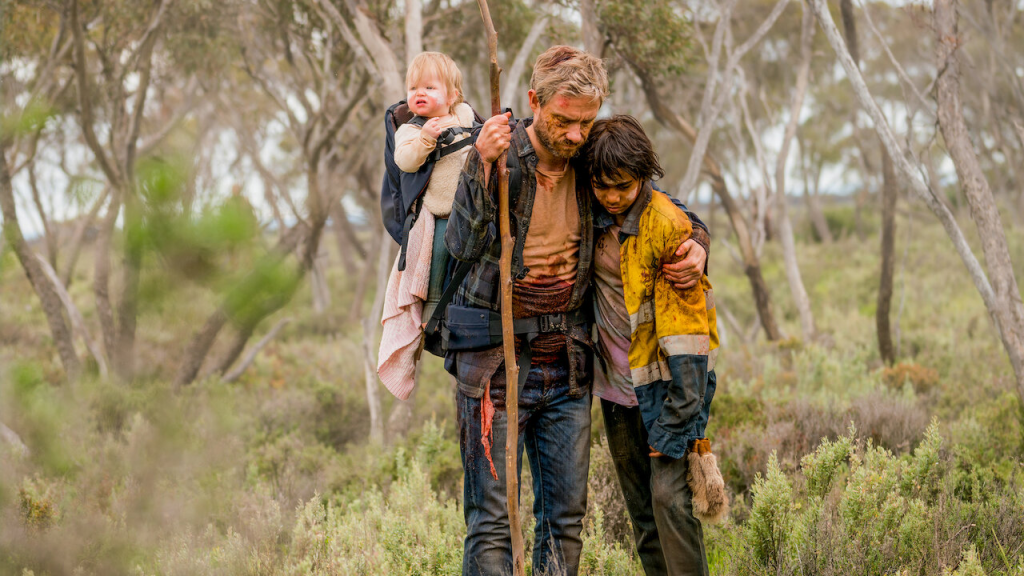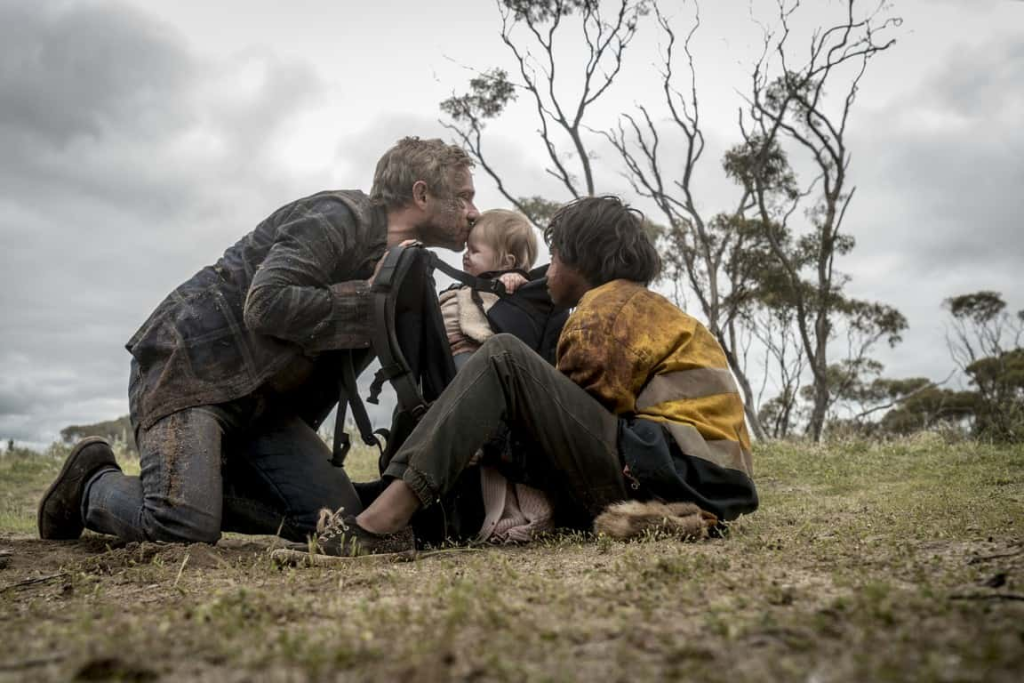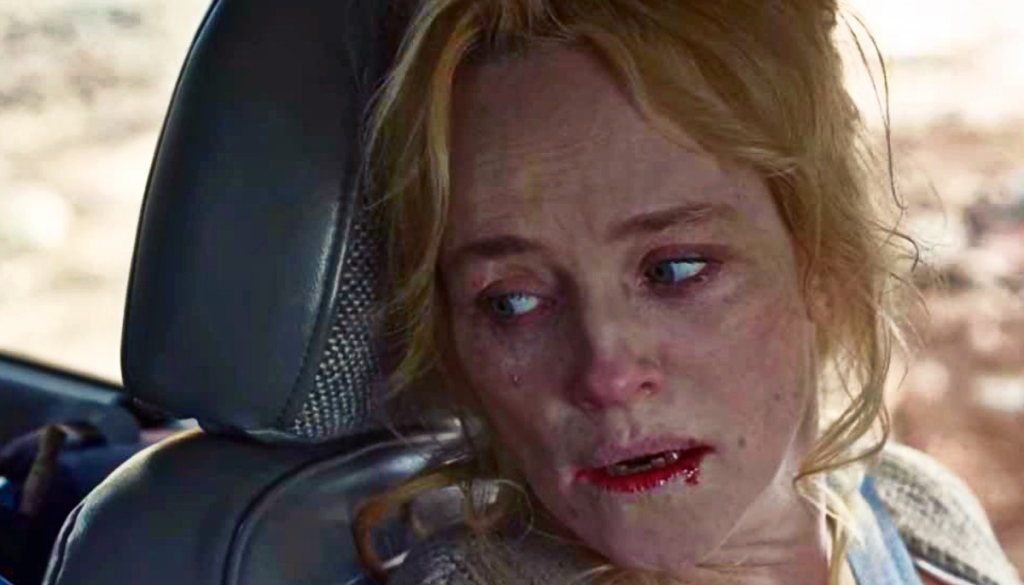Cargo (2017): A Heart-Wrenching Odyssey Through a Zombie-Infested Outback
Few films manage to breathe new life into the oversaturated zombie genre, but Cargo (2017) does so with haunting grace and emotional depth. Directed by Ben Howling and Yolanda Ramke, this Australian post-apocalyptic thriller takes viewers on a gripping journey through a ravaged landscape, anchored by a standout performance from Martin Freeman. Based on the duo’s 2013 short film of the same name, Cargo expands its premise into a feature-length narrative that transcends typical zombie fare, blending survival horror with a poignant exploration of parenthood, sacrifice, and humanity’s resilience. Set against the stark beauty of the Australian outback, this Netflix gem offers a fresh take on a familiar trope, proving that even in a world overrun by the undead, the most compelling stories are those of the living. In this article, we’ll dive deep into the film’s plot, themes, performances, and cinematic achievements, uncovering what makes Cargo a standout in modern cinema.
A Desperate Voyage: The Plot Unraveled
Cargo begins in a world already shattered by a viral pandemic that turns its victims into ravenous, rabid creatures within 48 hours of infection. We meet Andy Rose (Martin Freeman), his wife Kay (Susie Porter), and their infant daughter Rosie as they navigate this bleak reality aboard a houseboat drifting down a remote Australian river. The family’s fragile sanctuary on the water hints at a desperate bid for safety, but their dwindling food supplies force a critical decision: stay aboard and starve or risk venturing ashore. Kay pushes for scavenging, but Andy, ever cautious, resists—until fate intervenes.

Their journey takes a tragic turn when Kay is bitten during a scavenging attempt gone wrong. In a heartbreaking sequence, Andy tries to save her, driving toward a distant town in a salvaged car, only to crash after swerving to avoid an infected Aboriginal man. Kay, impaled in the wreck, succumbs to the virus and bites Andy before he can free Rosie from the wreckage. Now infected himself, Andy faces a ticking clock: 48 hours to find a safe haven for his daughter before he, too, turns. With Rosie strapped to his back, he sets off across the desolate outback, a grieving father on a mission fueled by love and desperation.
Along the way, Andy encounters Thoomi (Simone Landers), a young Aboriginal girl hiding her infected father, Willie, from her community, who burn the afflicted to stem the outbreak. Their paths intertwine with other survivors, including the sinister Vic (Anthony Hayes), a fracking worker exploiting the chaos for personal gain, and Lorraine (Caren Pistorius), his captive “wife.” As Andy’s time runs out, his bond with Thoomi deepens, leading to a climactic act of sacrifice that ensures Rosie’s survival, tying the narrative together with a bittersweet resolution that lingers long after the credits roll.
Beyond the Undead: Themes That Resonate
While Cargo operates within the zombie genre, it’s less about the infected and more about the human condition. At its core, the film is a meditation on parental love and the lengths one will go to protect their child. Andy’s unwavering determination to secure Rosie’s future, even as his own humanity slips away, elevates the story beyond mere survival horror. The 48-hour countdown—tracked by a wrist device provided in containment kits—adds a palpable urgency, transforming a standard zombie premise into a race against time that mirrors the fleeting nature of life itself.

The film also weaves in subtle social commentary, particularly through its Australian setting and Aboriginal characters. Thoomi’s struggle to save her father reflects a clash between traditional values and the harsh realities of the apocalypse, while Vic’s exploitation of the land and people hints at colonial greed and environmental destruction—echoed by “No Fracking” signs scattered in the background. These elements ground Cargo in a specific cultural and ecological context, distinguishing it from generic zombie tales and inviting viewers to ponder deeper issues beneath the surface terror.
Stellar Performances: The Heart of the Outback
Martin Freeman’s portrayal of Andy is the emotional linchpin of Cargo. Known for his everyman charm in roles like Bilbo Baggins or John Watson, Freeman brings a raw vulnerability to Andy that’s both relatable and devastating. His quiet intensity—conveyed through weary eyes and a trembling voice—captures the weight of a father’s burden, making every step of his journey feel authentic and urgent. Critics have lauded his performance as a career highlight, and it’s easy to see why: Freeman carries the film with a understated power that anchors its emotional stakes.

Simone Landers, in her debut role as Thoomi, is a revelation. Her fierce determination and quiet strength provide a compelling counterpoint to Andy’s despair, creating a dynamic partnership that drives the narrative forward. The chemistry between Freeman and Landers feels organic, their shared grief forging a bond that transcends language or culture. Supporting players like Anthony Hayes, who imbues Vic with a chilling mix of charisma and menace, and Susie Porter, whose brief but impactful turn as Kay sets the tragedy in motion, round out a cast that elevates the script’s emotional resonance.
Cinematic Craftsmanship: A Visual and Sonic Triumph
Visually, Cargo is a feast for the senses, thanks to cinematographer Geoffrey Simpson’s masterful work. The Australian outback—windswept, rugged, and teeming with flies—becomes a character in its own right, its vastness amplifying the characters’ isolation and peril. Simpson’s wide shots capture the landscape’s desolate beauty, while handheld close-ups heighten the tension of zombie encounters, striking a balance between awe and dread. The film’s muted color palette, dominated by earthy tones, underscores the bleakness of its world, yet occasional bursts of light—like the golden hues of dawn—offer fleeting hope.

The sound design and score, composed by Benjamin Speed, further enhance the film’s atmosphere. From the eerie hum of distant infected to the mournful strings that swell during Andy’s quiet moments with Rosie, the audio landscape immerses viewers in both the terror and tenderness of the story. Subtle touches, like the rhythmic ticking of Andy’s countdown timer, keep the stakes ever-present, while the absence of a bombastic soundtrack allows the natural sounds of the outback—rustling leaves, buzzing insects—to deepen the realism.
A Fresh Take on a Tired Genre
What sets Cargo apart from its zombie peers is its restraint. Unlike gore-heavy shockfests, it prioritizes character over carnage, sidestepping jump scares for a slow-burn tension that builds to a gut-punching finale. The infected, never explicitly called “zombies,” are less monstrous threats and more tragic victims, their head-burying behavior (a nod to ostriches) adding a quirky yet unsettling twist. This focus on drama over horror aligns Cargo more closely with films like The Road or 28 Days Later than traditional zombie fare, earning it comparisons to the works of George A. Romero for its thematic depth.

Critics have praised this approach, with Rotten Tomatoes boasting an 87% approval rating and a consensus that highlights its “character-driven” freshness and Freeman’s “terrific” performance. Metacritic’s score of 65 reflects “generally favorable” reviews, though some note its pacing can drag in the middle act. For fans of the genre, Cargo delivers enough thrills to satisfy, while its emotional core appeals to those seeking something more substantial—a rare balance in a market flooded with undead cliches.
Final Thoughts: A Journey Worth Taking
Cargo (2017) is a film that lingers, its quiet power rooted in its humanity rather than its horrors. It’s a testament to the strength of its cast, the vision of its directors, and the universality of its themes—love, loss, and legacy—that it stands out in a crowded field. While it may not reinvent the zombie wheel, it carves a unique path through familiar territory, offering a story that’s as heartbreaking as it is hopeful. For those willing to brave its emotional weight, Cargo is a rewarding experience, a reminder that even in the darkest times, the light of compassion can shine through.
Thank you for joining me on this deep dive into Cargo. If you enjoyed this exploration, I invite you to check out my other film reviews and articles—there’s plenty more cinematic treasure to uncover! Whether you’re a zombie aficionado or just love a good story, let me know your thoughts on Cargo in the comments below, and happy watching!
